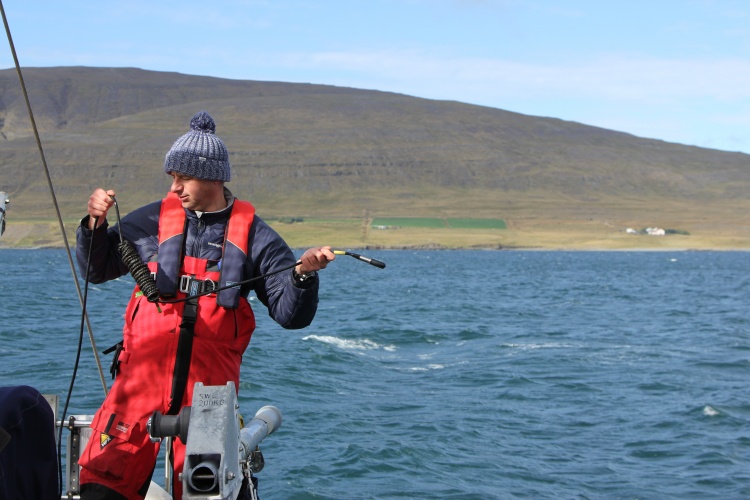Acoustic deterrent keeps marine mammals from offshore builds
New research has shown that acoustic deterrent devices (ADDs) can be effective at protecting marine mammals from offshore wind construction.


An MCR researcher deploys a microphone (Credit: MCR)
Led by the Carbon Trust and the Offshore Renewables Joint Industry Programme (ORJIP), the project demonstrated that minke whales showed a clear response to ADDs. The devices, which emit a high-frequency noise at the upper limit of human perception, are more commonly used to deter seals and porpoises from commercial fishing grounds. Researchers are now exploring their effectiveness around wind farm construction, where the percussive pile-driving required for foundations can be damaging to marine mammals.
The study, carried out by Marine Conservation Research (MCR) in Faxaflói Bay in southwest Iceland, gauged the response of numerous minke whales to ADDs using video range tracking (VRT). The researchers employed a Lofitech Seal Scarer which, according to the manufacturer’s website, uses a pulse generator and an amplifier that transmits random bursts of audio frequency signals to the transducer, where they are converted into intense sound. On all 15 occasions of ADD deployment, the whales were observed to move away from the device once it was activated, and also exhibited faster swimming speeds.
Register now to continue reading
Thanks for visiting The Engineer. You’ve now reached your monthly limit of news stories. Register for free to unlock unlimited access to all of our news coverage, as well as premium content including opinion, in-depth features and special reports.
Benefits of registering
-
In-depth insights and coverage of key emerging trends
-
Unrestricted access to special reports throughout the year
-
Daily technology news delivered straight to your inbox










UK Enters ‘Golden Age of Nuclear’
The delay (nearly 8 years) in getting approval for the Rolls-Royce SMR is most worrying. Signifies a torpid and expensive system that is quite onerous...